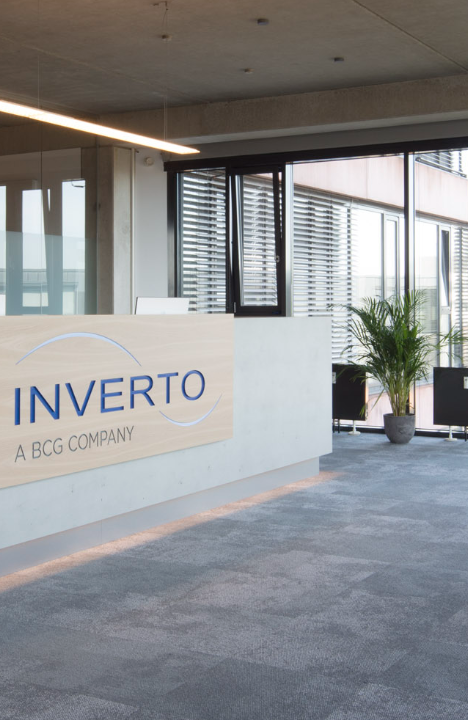INVERTO study shows if your private equity company has clear-cut goals, it is more likely to succeed
Private equity companies see optimizing their procurement as one of the best ways to improve the bottom line of their portfolio companies: this is what a study by INVERTO has concluded. The survey also revealed that private equities with a set of clear-cut procurement goals for their portfolio companies and a variety of optimization measures achieve much more success than those that don’t. The most important period is the first 100 days after the takeover.
Private equity companies are primarily focusing on growing their portfolio companies’ sales and performance, so they can offer all-important added value. A good two-thirds (67%) of the executives surveyed see high potential in improving pricing and sales structures, while slightly fewer (64%) rely on regional expansion and extending product ranges. 56% of study respondents see acquisitions, or rather add-on investments, as a suitable route to success.
When it comes to improving the company’s bottom line, procurement is number one on the list of the most promising areas for success. 33% of respondents believe that there is great potential for value creation in procurement. This is followed by production and service at 25% and working capital at 22% as targets for optimization.
Private Equity Companies Rely Heavily on Traditional Procurement Approaches
Private equities that see the high potential for value creation in procurement typically achieve better savings than those that don’t. The vast differences in performance could also be because those who are convinced by the added value that procurement offers demand clear goals for improving procurement from their portfolio companies. Yet, the majority of private equities do not set goals. Those that do set out their expectations in the form of goals achieve on average 4.3% better savings, a third higher than their competitors at 2.8%.
The survey also shows that, although all private equity companies carry out procurement optimization, the overwhelming majority (72%) only rely on traditional strategies such as re-negotiation or re-tendering. More promising approaches such as technical specification reviews, demand management, and global sourcing are only used by around half of the companies surveyed. But it is these measures that actually offer high potential. Companies already owned by a private equity parent, in particular, should adopt more sophisticated tools to reap further potential for savings.
Using External Consultants for Operational Optimization
Around three-quarters (74%) of private equity respondents use external consultants in the operational areas of their portfolio companies. The main reasons for working with a consultancy firm are a lack of specialist skills (88%) and a lack of time resources in portfolio companies (80%). A consultancy team brings knowledge and additional human resources to the table, which can be used to develop new and more complex procurement solutions.
Procurement optimization measures usually only take a few months to deliver results. They can help to finance expansion plans or new product developments, for example. Private equities should therefore analyze the needs, processes, and hidden potential in procurement as soon as the takeover is complete, so they can define specific improvement goals and determine the subsequent measures. That is how to achieve initial success within the first 100 days of a takeover and ensure procurement makes a major contribution to added value.
About the Private Equity Study
For the Private Equity Study, INVERTO surveyed around 60 executives from private equity firms that manage a portfolio of over €200 billion and hold companies for approximately five years. INVERTO identified the strategies that are typically used to optimize portfolio companies and the way that private equities behave specifically when it comes to procurement.
To read the white paper, containing the results of the study and the recommended actions, please visit the respective publication.
